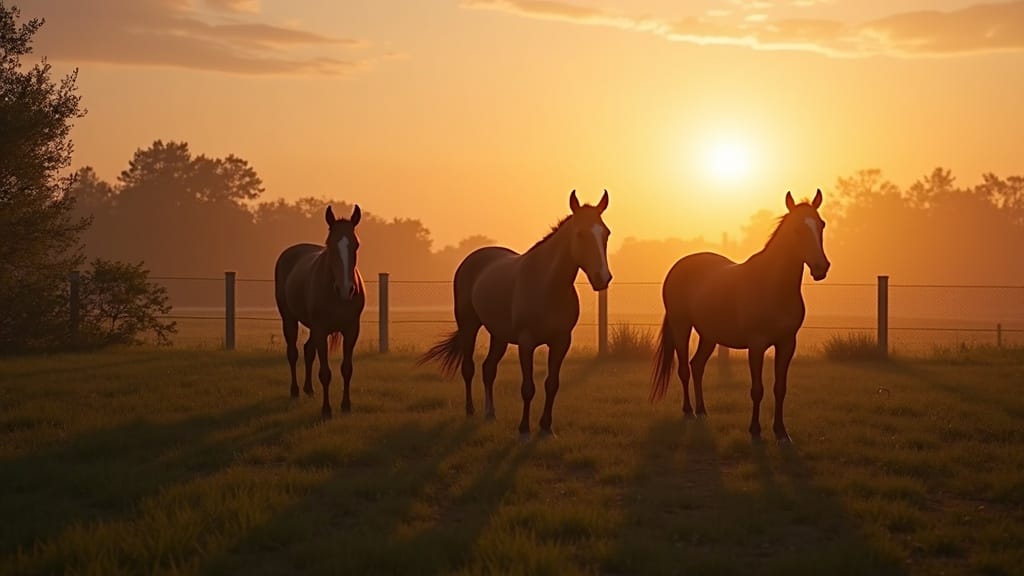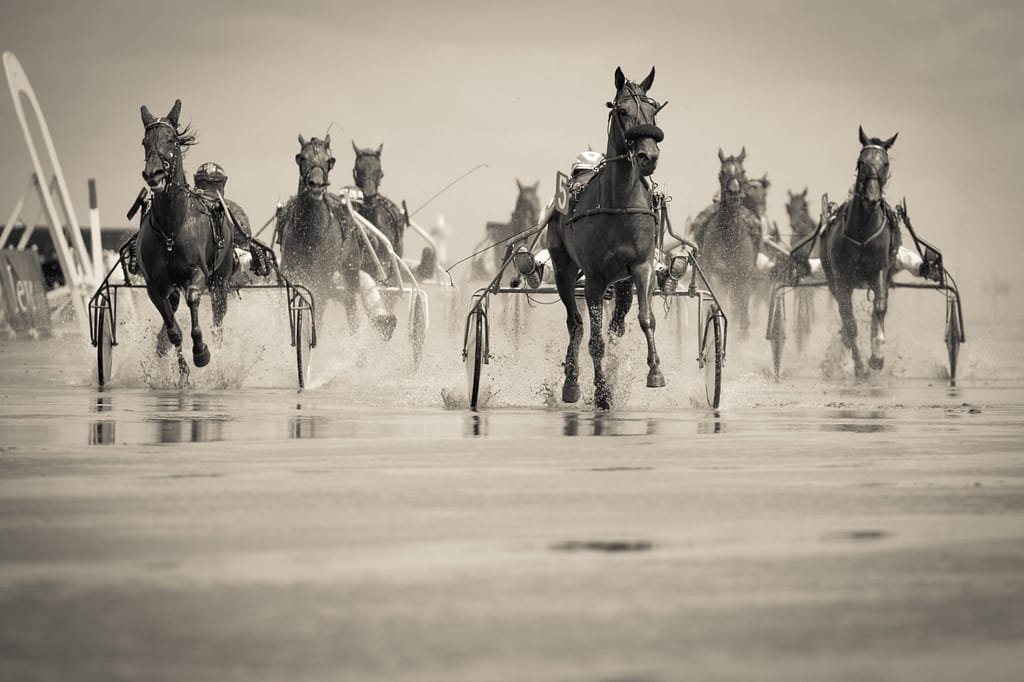
The Pros And Cons Of A Career In Horse Training
A career in horse training can offer adventure, satisfaction, and plenty of challenges. Working with horses lets me blend physical activity, compassion, and skill in a way that few other jobs match. Like any profession, though, this path has both high points and tough trade-offs. Here I break down the main benefits and drawbacks of working as a horse trainer, so you can figure out if it might fit your lifestyle and goals.
What Does a Horse Trainer Do?
Horse trainers teach horses new skills, prepare them for specific roles, and help fix unwanted behaviors. My work often involves creating tailored training plans, exercising horses, and working closely with owners, riders, and vets. Some trainers focus on disciplines like dressage, show jumping, or racing, while others specialize in rehabilitating problem horses or introducing green horses to riding.
This career calls for patience and consistency. Horses need repetition and positive experiences to learn well. Many trainers also handle daily care, business responsibilities, and travel for competitions or client meetings. Having a diverse skill set pays off, especially when building a loyal client base or moving between different stables and disciplines.
The Upsides of a Career in Horse Training
Plenty of satisfying aspects keep me coming back to the barn every day. Caring for horses and helping them grow is a powerful motivator, and every horse has its own personality and challenges. So, here are the key reasons why horse training can be a very fulfilling profession:
- Working Outdoors: I get to enjoy fresh air and nature as part of my daily routine. Spending much of my day outside beats sitting at a desk by a long shot for many trainers, especially those who appreciate physical activity.
- Building Relationships with Horses: Strong bonds form over time. Trust builds slowly, but it feels rewarding when a horse starts to respond positively and learns new tasks.
- Variety and Challenge: No two days feel quite the same. I might be backing a nervous young horse, tweaking a show jumper’s technique, or coaching clients on their riding.
- Personal Growth: Horses reflect my mood, timing, and skills back to me. Training has taught me to read body language and adjust my approach when things don’t go as planned.
- Helping Others: I often guide owners in understanding their horses better. Watching a partnership blossom because of my guidance is one of the most rewarding parts of the job.
Success stories, such as seeing a once-unruly horse earn a blue ribbon or working with a horse that was nearly unrideable, offer moments of pure pride. Each one reminds me why I started in horse training in the first place.
The Downsides and Difficulties
Horse training involves risks and daily hurdles that require determination and adaptability. Here are the main challenges I have faced or seen others deal with:
- Physical Demands: Long hours and intense activity can wear me out. Lifting heavy gear, staying on my feet, and riding different horses daily all take a toll on my body. Injuries are not unusual in this field.
- Inconsistent Income: Horse training income can go up and down. Earnings depend on location, clientele, season, and reputation. Many trainers offer boarding, lessons, or sales to create more stable income streams.
- Emotional Challenges: Horses sometimes have behavioral or health issues that are tough to fix. Seeing slow progress or setbacks can be discouraging.
- Unpredictable Work Hours: Training sessions, emergencies, and horse shows often happen early mornings, late evenings, or weekends. This work rarely sticks to a regular 9-to-5 schedule.
- Weather and Environment: Rain, heat, cold, and mud are all part of the job. Sometimes I’m out in rough conditions, and indoor options may not always be available.
Staying motivated and healthy means knowing my limits. Regular breaks, crosstraining, and support from others in the industry help me manage the overwhelming days.
Starting Out with What You Need to Succeed
Getting established as a horse trainer comes with a learning curve. Most trainers, like me, started with a basic knowledge of horsemanship and grew their skills through experience, apprenticeships, or formal courses. Persistence and honesty matter. Horses and clients alike can tell when someone cares and is committed to doing good work.
Here’s what I found helpful to build up my reputation and keep things running smoothly:
- Hands-On Experience: Spending consistent time with different horses sharpens my instincts and skill set. Volunteering or working as an assistant is a great starting place.
- Certifications and Training: Many trainers earn professional certifications through programs run by reputable horse organizations. These show clients I meet certain standards for safety and knowledge.
- Building Connections: The horse community is tight knit. Recommendations and word of mouth referrals are vital, so growing professional relationships with vets, farriers, and stables pays off.
- Clear Business Practices: Clear contracts, fair pricing, and honest communication help me win and keep clients. Keeping good financial records and setting realistic rates also helps with longterm success.
Things to Consider Before Choosing This Career
A passion for horses alone may not carry a trainer through the hardest days. It’s really important to weigh practical factors and ask some honest questions about what the job will require. Here are the main points I would recommend thinking through:
- Financial Planning: Keeping savings and having alternate income during slower months can prevent stress. Consider side work, such as teaching lessons or managing a barn, in the early years.
- Longterm Health: Take care of your body with regular exercise, proper nutrition, and breaks. Overworking can lead to injuries and burnout.
- Support Network: Surrounding myself with mentors, trainers, family, or friends makes the challenges easier to manage. Training horses can feel isolating without a reliable support circle.
- Lifelong Learning: The equine industry changes and grows. New techniques, advances in nutrition and veterinary care, and the latest in equine science require me to keep up through workshops and reading.
In addition, check in with your own expectations before jumping in. Some people picture constant wins and blue ribbons, but real horse training comes with slow progress, setbacks, and a need for patience. It’s key to keep the rewards and the reality in balance.
Manage Risk and Safety
Safety is always on my mind. Horses are strong and can react quickly, so I use protective gear and avoid shortcuts when handling unknown or unpredictable animals. Adequate insurance and a clear plan for emergencies are also part of my regular routine.
Staying sharp means always respecting horses’ boundaries, using safe handling techniques, and creating an environment where both I and the horses can work calmly. Good mentorship goes a long way toward learning these habits.
Tips to Make Horse Training Work for You
With the right approach, I find that most challenges in this field can be minimized. Here are some practical steps I use to build a more balanced and sustainable horse training career:
- Keep Setting New Goals: Whether I want to master a specific discipline or develop better communication with clients, clear goals keep me focused and motivated.
- Remember to Enjoy Small Wins: Progress is often slow. Celebrating simple improvements keeps spirits high for both me and the horses.
- WorkLife Balance: Boundaries help me spend time away from the barn and prevent burnout. Scheduling time off, even in busy season, leads to better performance longterm.
- Document Training: Keeping notes on each horse’s progress lets me track what works and what needs adjusting in my approach.
Using these strategies has made my job both more enjoyable and more effective for the horses I work with. Also, don’t hesitate to ask for advice from experienced trainers when you hit roadblocks; the community can be incredibly generous with support and tips.
Frequently Asked Questions
If you’re thinking about becoming a horse trainer, you might have some questions. Here are answers to the ones I’m asked most often:
Question: How do I know if horse training is right for me?
Answer: If you love learning from animals, enjoy working outdoors, and are comfortable with physical labor, you might thrive as a trainer. Volunteering or apprenticing at a stable can help you decide.
Question: How can I get clients as a new horse trainer?
Answer: Build your reputation by offering to work with friends, local stables, or through recommendations. Professional networking and maintaining high standards go a long way in finding new clients.
Question: Do I need any special education or certificates?
Answer: While not always required, industry certifications show your commitment and knowledge. Many trainers also study animal science, attend clinics, or take continuing education courses.
Making the Choice
A career in horse training has given me experiences and memories that I wouldn’t trade for anything. While there are tough days, the blend of personal growth, rewarding partnerships, and outdoor life makes this a career worth considering for anyone who feels at home around horses. Taking time to think through the pros, cons, and practical steps helps build a path that fits your ambition and lifestyle.
Enjoy your equestrian journey! 🏇
Build Your Online Business
and Learn Affiliate Marketing
See you there!
Our Unique Value Propositions
Discover why Chwals GPT is the top choice for equestrians looking
to build their online presence (register for free)
Tailored Equestrian Expertise – Community Connection – Intuitive User Experience



